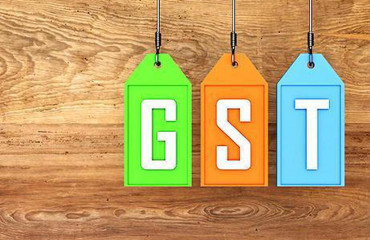
New Delhi: The Parliament has approved the necessary legislative modifications for implementing the Goods and Services Tax (GST) Council’s proposal to levy a 28% tax on the full value of deposits made by individuals to online gaming platforms, casinos, and horse racing clubs.
New Delhi: The Parliament has approved the necessary legislative modifications for implementing the Goods and Services Tax (GST) Council's proposal to levy a 28% tax on the full value of deposits made by individuals to online gaming platforms, casinos, and horse racing clubs.
According to a notification issued on Friday, the legislation will be effective from 1 October. Both Houses of Parliament have endorsed the Central Goods and Services Tax (Amendment) Bill, 2023 and the Integrated Goods and Services Tax (Amendment) Bill, 2023. The laws will come into effect in October. It's important to note that the 28% GST applies solely to instances involving wagering on gaming sites. GST will not be imposed on casual gaming services offered by the platforms.
Parliament approval for the legislative changes on the last day of the monsoon session indicates that the new tax laws will be implemented as decided by the GST Council. States will also have to clear the changes to State GST laws to implement the law. The amendments will not affect tax on casual online gaming, wherein no real money, betting, or wager is involved, said a government official, seeking anonymity.
A simplified but mandatory GST registration for overseas platforms offering online money gaming services to Indian consumers, and a special provision bringing tax liability on such platforms, were part of the amendments. Non-compliant offshore gaming platforms or websites will be blocked.
However, experts said the definition of "online gaming", "online money gaming", "specified actionable claim", and "virtual digital asset" in the amendment are still "ambiguous".
"With the amendments, online gaming companies shall not expect any litigation in respect of the charge of GST, prospectively. However, litigation for the old period will continue. The regulations clarified that international e-gaming corporations would be treated at par with Indian counterparts and will need registration in India for payment of GST," said Rajat Mohan, senior partner at accounting firm AMRG and Associates.
The council's proposal to impose a 28% GST on the so-called actionable claims (in legal parlance) or the chance to win in horse racing, online gaming and casinos, irrespective of them being games of skill or chance, was taken after elaborate deliberations for about three years. "There will be no effect of the amendments on India's startup ecosystem, as it brings parity between global entities and domestic firms, the official added.
The amendments were cleared by the GST Council on 2 August.
Any payment made for these activities in crypto assets will also be taxable. Besides, activities wherein players make deposits or pay in monetary form or in the form of virtual digital assets (VDAs) with the expectation of winning money or an equivalent, including VDAs, fall under the scope of online money gaming.
This applies regardless of whether the outcome relies on skill, chance, or a combination of both or whether it is permitted under any legal framework.
Notably, this definition takes into consideration the prohibition of online gaming involving stakes in Tamil Nadu.
Despite the online gaming industry's appeal to impose GST on gross gaming revenue, referred to as their margins, the council chose to apply GST on the complete value of the deposited amount. Some industry players said that imposing 28% GST on the nominal value of deposits does not serve the industry's best interests.
The council "duly considered the negative impact of online money gaming on society and the youth in particular, in the form of internet gaming disorder due to addiction to online gaming", the official cited above said.
